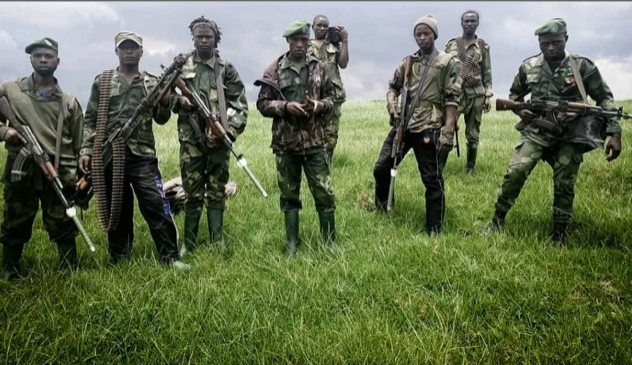In a recent statement from the Volontaires pour la Défense de la Patrie (VDP-RDC), also known as Wazalendo, the group addressed claims made by the Ugandan People’s Defence Force (UPDF) in their communique numbered UPDF/INFO/C23. Dated February 17, 2024, in Rutshuru, the VDP-RDC’s response outlined several points to clarify their position and counter allegations made by the UPDF.
The VDP-RDC emphatically distanced itself from the Democratic Forces for the Liberation of Rwanda (FDLR), emphasizing that it is a distinct entity composed of Congolese patriots. This clarification comes in response to the UPDF’s attempt to associate the VDP-RDC with the FDLR, an act the VDP-RDC deems as misleading and part of a discreditable propaganda effort.
The group reiterated accusations of Ugandan troops’ presence on Congolese soil, allegedly alongside Rwandan forces under the guise of the M23 rebel group. They highlighted the historical context of such allegations, noting the joint UPDF and RDF capture of Bunagana on June 13, 2022, which followed a failed initial attempt by the RDF on May 24, 2022. These events underscore the longstanding tensions and complex dynamics within the region.
Notably, the VDP-RDC referenced social media posts by General Muhoozi Kainerugaba, a senior advisor to Ugandan President Museveni, as indicative of Uganda’s intentions in the Congo since 2020. Additionally, they recounted an ambush on Major General Peter Chirimwami near Bunagana on June 13, 2022, resulting in casualties and injuries among his forces.
The statement also alleged that Uganda had engaged in efforts to entice Wazalendo military leaders into supporting plans for the balkanization of the Democratic Republic of Congo (DRC) during meetings held in 2020 and 2021. According to the VDP-RDC, these meetings occurred ahead of the resurgence of the M23 movement.
Further, the VDP-RDC criticized the 2020 agreements between the Congolese and Ugandan governments, interpreting them as a façade for Uganda’s alleged plans to fragment the DRC. The group accused Ugandan-supported figures, such as Bertrand Bisimwa and Makenga, of launching attacks from Uganda into the DRC since 2015.
The deployment of the East African Community (EAC) forces was cited as a mechanism allowing Uganda to smuggle significant military assets into the DRC, allegedly leaving a portion with terrorists. The VDP-RDC contends that Ugandan troops in Beni and Ituri, as well as Kenyan forces in Kisangani, are strategically positioned to facilitate the balkanization plan by seizing Goma and Bukavu and ultimately targeting the FARDC (Armed Forces of the Democratic Republic of the Congo).
The statement further touches on broader regional dynamics, accusing Rwanda and Uganda of fostering ethnic tensions within the DRC and planning violent protests to tarnish the DRC’s image internationally. It warns of a comprehensive strategy to destabilize the country, including plans for targeted massacres to justify intervention by Rwandan and Ugandan forces.
Lire ici notre réaction au communiqué de l’armée ougandaise, UPDF. L’hypocrisie dans cette région doit cesser. Nous avons besoin de la paix et rien que la paix !!!
Vive le Congo uni, fort et prospère !!! pic.twitter.com/JeahJPW9Pe— Jules Mulumba (@mulumba_jules) February 17, 2024































































